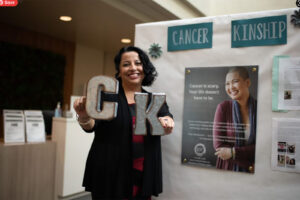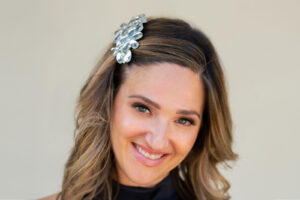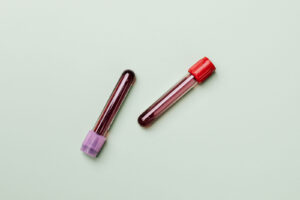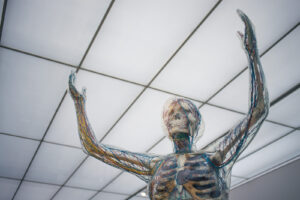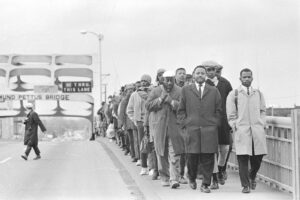As told to Britt Julious
Cancer never picks a good time to hit you. It just comes when it wants.
My husband and I were living in my mother-in-law’s house and had just purchased our first home together. While sitting there and watching HGTV to get ideas for my kitchen, I had an itch under my armpit. I scratched it as I would normally do and did not think anything of it. Later, I rested my hand on my right breast and started rubbing it. I’m very comfortable with my body. I’m a nurse. I constantly check my body in all places. I felt a lump that I [had] never felt before. I knew my body very well. My husband knows my body pretty well, too, so I asked him if he had ever felt [the lump] before. Right away, he said, “No, I never did.”
I love doctors. I have the utmost respect for anyone in the medical field, but I’m still human. I advocate for my patients all the time, so now it was time to advocate for myself. When I went to the doctor’s office, there was nothing in the left breast, just strictly the right.
They said, “Oh, it’s probably nothing. Probably fibroadenoma.” Even my doctor, who I absolutely adore so much, said, “You know what, it’s probably nothing. You’re so young.” [I’ve] heard that countless times, and if I hear, “You’re so young,” one more time, I’m gonna scream. Cancer happens younger and younger, to women and men.
After my testing, my doctor called a week later.
“It came back as cancer. I’m shocked,” she said. “I can’t believe I’m even saying this to somebody your age, but it’s cancer.”
As many times as I talk to doctors, I didn’t catch on to the tone of her voice and how she was talking to me. I was still the nurse, not quite the patient yet. I was all nonchalant [about the diagnosis]. It didn’t hit me until I looked into my husband’s eyes. He was waiting. We were all waiting for [that] phone call.
“Jamie, what happened? What was that about?” he asked.
I said, “Oh, it’s my doctor. Um… it’s cancer.”
The look in his eye [told me] this is real. This is something serious.
I’ve been with my husband now for 10 years, married for five, going on six. But this was the first time I had ever seen my husband cry. The look in his eye [told me] this is real. This is something serious.
I got the pathology results and learned I had stage I triple-positive breast cancer. With the worst-case scenario being cancer, I had the best chance of survival. I’ve always been a half-full kind of person. I’m a very positive person in everything, so I started to run with that.
I think a lot of people in the situation I am in, especially being so young, would have maybe said, “I’m gonna listen to the doctor. It’s probably nothing.” They let it go. Maybe they’ll say, “I’ll follow up on it and have a mammogram.”
I see it all the time. Even if a patient has doubt in their mind, because the doctor says so, that’s what they’re going to do. It’s so important for people—if they have that gut instinct, you need to run with it. And if it turns out to be nothing, great. That’s wonderful. At least you’ll know. At least you’ll have that confirmation that it is or it isn’t.
So many times people don’t follow their gut instincts, and that’s where people can get into trouble. When you have that gut instinct, then you [should] fight for yourself. I do that a lot in my job. I don’t take ‘no’ very easily. In any aspect of my life, I don’t take no for an answer. I fight for what I want.
It’s your body. It’s not the doctor’s body. It’s not the nurse’s body. It’s not anyone else’s. It’s yours. And if you don’t think something is right, you make sure somebody hears you. If that one doctor doesn’t hear you, you move on to the next and you move on to the next until somebody does and you get the testing that you need.
Control for me was a big thing. Having control helped me keep my anxiety at bay. It goes back to IVF [when I was] trying to get pregnant. I felt like I was losing complete control over that [process] because I couldn’t make it happen. And then I had a baby, and you have no control over a baby. I couldn’t get it together.
They talk about postpartum depression, but I had the anxiety. Once I was diagnosed with cancer and started going through all my treatments, I felt like that anxiety was kicked to the curb. Cancer’s going to do what it wants. It’s not going to listen to anybody or anything. I had bigger things to worry about, and I was fighting for my life. After chemo, you get side effects. You get nauseous. You throw up. Your life is not yours anymore. It was hard for me to accept.
Emotionally, I was completely fine. In the inside, I was freaking out.
It just goes to show: Cancer’s going to do whatever it wants and there’s no control. I think I finally learned that I have no control. And I think I finally accepted it. I’m okay with that now.
[My mastectomy was] July 5 and then I started reconstruction. I shaved my head on Aug. 4 and on Aug. 5, [I started] chemo. I had major fear and anxiety about losing my hair, and I didn’t really know how to cope with a cancer diagnosis at a young age. So I think I took it out on my own hair. That’s how I targeted my anger. I would look in the mirror and that’s what I would see: my hair [and] my fear of losing that. I thought I’d look terrible with a shaved head, but it actually doesn’t look that bad, so I embraced it.
Once I started [taking] Taxol, I had a reaction. I got palpitations. I was flushed everywhere. My heart [began] to race. Because I’m a nurse, I knew what [was] happening. My husband freaked out way more than I did.
“You just need to get the nurse,” I told him. “They’re gonna start IV fluids. They’re gonna give me Benadryl. They’re gonna give me steroids. It’s going to be okay.”
I’ve always been the one to calm other people down because […] it’s in my nature. I care for others. But I didn’t care for [myself] like I should. And I’ve learned that throughout this, that I definitely need to take time for myself. That’s what I do now.
In the end, after all my chemo treatments, I never lost my hair. I lost my eyebrows instead. It just goes to show: Cancer’s going to do whatever it wants and there’s no control. I think I finally learned that I have no control. And I think I finally accepted it. I’m okay with that now.
I almost feel like [cancer] helped me in a way finally put into perspective what was important in my life and stop worrying about these little things. I feel like I now can finally enjoy my son how I should have all along without worrying so much.
It’s your body. It’s not the doctor's body. It’s not the nurse's body. It’s not anyone else’s. It’s yours.
But once I finally thought about it, I realized these people are here to help me. It’s okay to let other people help in general—not just the doctors, not just the nurses, but also my family. To let people simply do the laundry for me. To let people clean for me or wash my hair. I started to feel more at peace and I was able to heal emotionally and physically from all of this, because I simply started to just let it go and accept that this was happening. This is going to happen whether I want it to or not.
I think I finally learned that I have no control and I’m okay with that now. Take the time you need to cope and understand what’s happening to you. There are no rules on when it’s OK to cry and not to cry. If you’re recovering, take what you need and let go of what you don’t—to heal physically and emotionally. There’s no right or wrong answer.
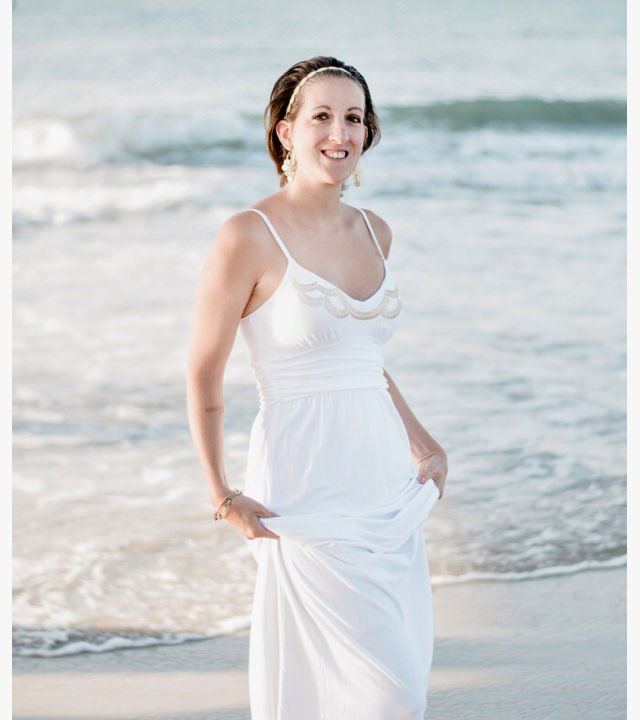
Jamie Shelton is just an average girl with not so average problems! She is a mom, wife, nurse and now, a breast cancer survivor. Shelton was diagnosed at just 31 years old with stage I triple positive breast cancer. Shelton says she was nervous and scared but always optimistic. She went through hell, but came out on top, stronger than ever! Shelton hopes her story inspires others.


